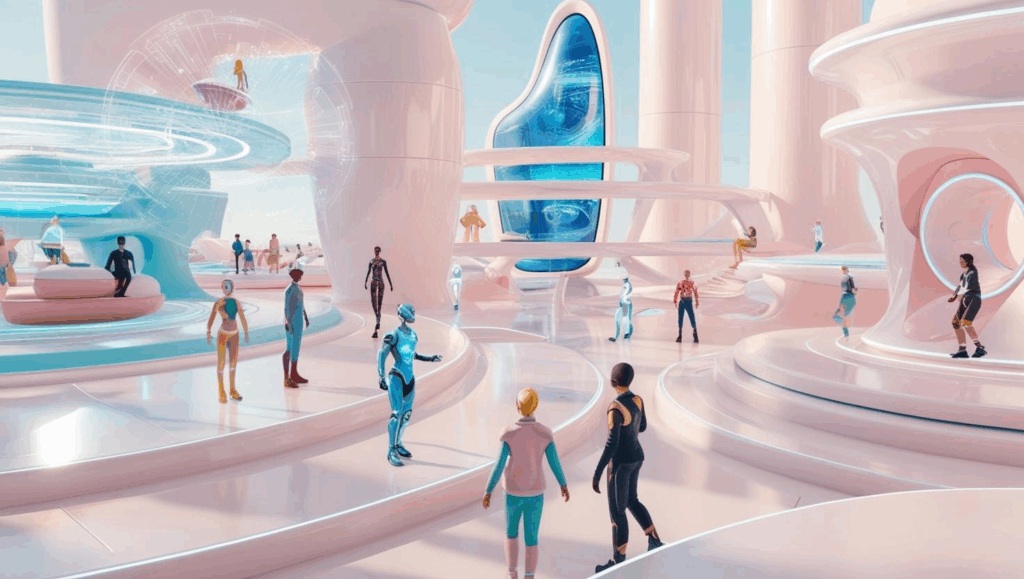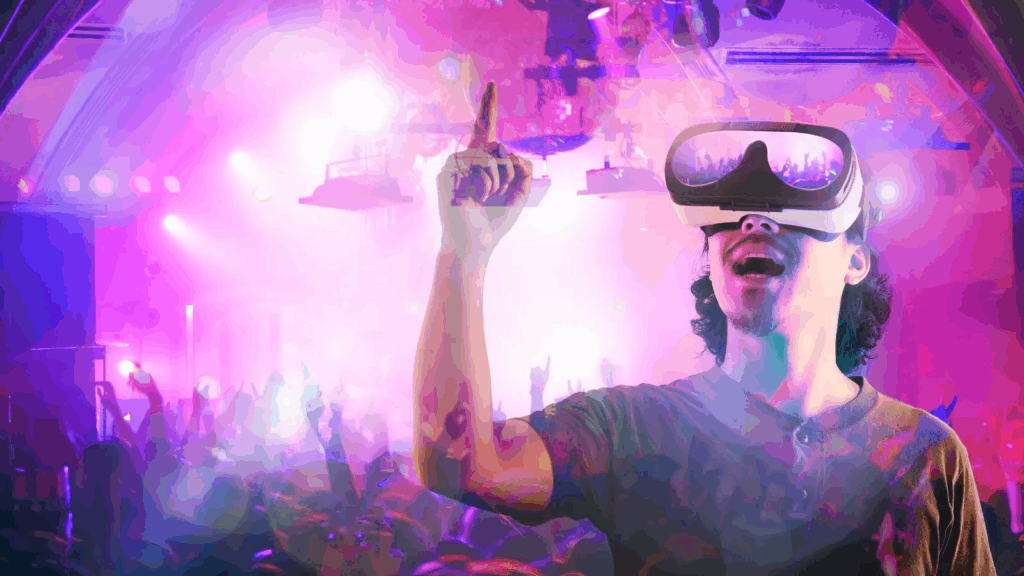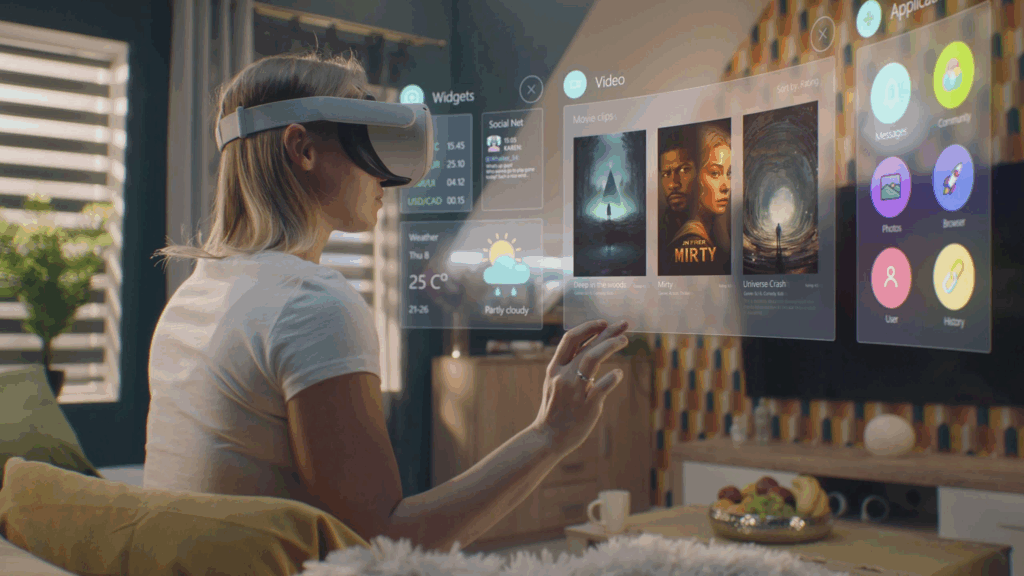The future of entertainment has arrived — and it’s virtual. Welcome to the Metaverse, a digital world where your avatar can attend live concerts, watch blockbuster movies, and interact with fans from around the globe, all from the comfort of your living room. As VR (virtual reality) technology advances, the way we consume entertainment is evolving rapidly — and so are our expectations. In this new age, the Metaverse isn’t just science fiction; it’s redefining how we experience sound, story, and social connection.
In this post, we’ll explore how the Metaverse is transforming movies and concerts, who’s leading the way, and why your next big night out might happen entirely in virtual reality.
The Rise of the Metaverse: More Than Just a Buzzword

Once a fringe concept reserved for gamers and futurists, the Metaverse has now become a central pillar of innovation across the entertainment industry. With tech giants like Meta, Apple, and Google investing billions into immersive technologies, we are witnessing a massive shift in how digital worlds are developed and consumed.
Platforms such as Horizon Worlds, VRChat, and Decentraland are already hosting events, games, and concerts attended by millions. The Metaverse isn’t just an extension of social media — it’s becoming an experiential layer where music, film, and interactive storytelling converge.
Movies Go Virtual: Immersive Storytelling in 360 Degrees

The film industry is embracing the Metaverse to revolutionize how movies are made and experienced. Virtual reality enables audiences to step into a story, explore a set in real time, or view a scene from multiple perspectives. Imagine watching a war epic where you’re a soldier on the battlefield or a romantic drama where you can stand next to the characters. This is the power of VR cinema.
Companies like Oculus (now part of Meta) and platforms such as Bigscreen VR are already allowing users to join virtual theaters, watch movies with friends, and engage in post-film discussions — all in a shared digital space. And as CGI and real-time rendering improve, directors are gaining new tools to create immersive narratives that were never possible on a traditional screen.
In the entertainment world, movies are becoming more than just visual art — they’re turning into multi-sensory experiences tailored to individual viewers.
Concerts in the Cloud: When the Stage Is Everywhere

Live concerts have always been about energy, emotion, and connection — and VR is taking these elements to new heights. Artists like Travis Scott, Ariana Grande, and The Weeknd have already hosted massive virtual concerts inside platforms like Fortnite and Wave, attracting millions of global attendees.
These events are not just livestreams; they’re interactive performances where fans can dance, fly, or morph with the beat, all while surrounded by spectacular visual effects impossible in real life. The future of concerts in the Metaverse could include personalized holographic encounters, real-time fan interactions, and collectible NFTs that act as virtual ticket stubs.
For artists and producers, the appeal is clear: global reach without geographic limits, creative freedom beyond physical laws, and entirely new revenue streams. For fans, it’s a front-row seat to the future of music — and it never sells out.
Technology at the Core: Powering the Metaverse Revolution

None of these advancements would be possible without the rapid growth of immersive technology. Headsets like the Meta Quest 3 and Apple Vision Pro are delivering higher-resolution visuals, spatial audio, and full-body motion tracking. Meanwhile, blockchain and Web3 integrations allow for decentralized ownership of virtual goods, from skins and avatars to concert tickets and movie passes.
AI is also playing a crucial role in shaping the entertainment landscape of the Metaverse. Whether it’s generating realistic digital backgrounds or enabling adaptive storylines that change based on your actions, technology is empowering creators to push the limits of imagination.
High-speed internet, cloud computing, and 5G connectivity ensure that even users on mobile devices can participate in immersive movies and concerts — no need for expensive rigs or elite hardware.
Challenges and Criticism: Is the Metaverse for Everyone?

While the potential is enormous, the Metaverse also faces skepticism. Accessibility remains a concern: not everyone has access to VR hardware or high-speed internet. There are also valid questions about data privacy, moderation, and the psychological effects of spending long hours in immersive worlds.
In the entertainment space, some purists argue that digital concerts and movies can’t match the emotional depth and authenticity of real-world experiences. But as technology continues to improve and user adoption grows, these barriers are likely to diminish over time.
Creators and tech companies must work together to ensure that the Metaverse is safe, inclusive, and as enriching as the real world it’s modeled after.
The Future Is Here: Blending Real and Virtual Entertainment

The lines between physical and virtual entertainment are blurring. Hybrid events — where a live audience shares space with virtual participants — are becoming the new norm. Artists can perform to fans in a stadium while simultaneously streaming a Metaverse version of the same event, complete with enhanced digital effects.
In the world of movies, VR spin-offs and alternate-reality experiences are adding layers of engagement beyond the cinema. Fans can enter the universe of a film, solve mysteries, or influence plot outcomes in real-time — a level of interaction that traditional media can’t match.
As concerts and films continue to evolve inside the Metaverse, one thing is clear: this is not just a trend. It’s the beginning of a transformation that will reshape how we define presence, performance, and participation in entertainment.
